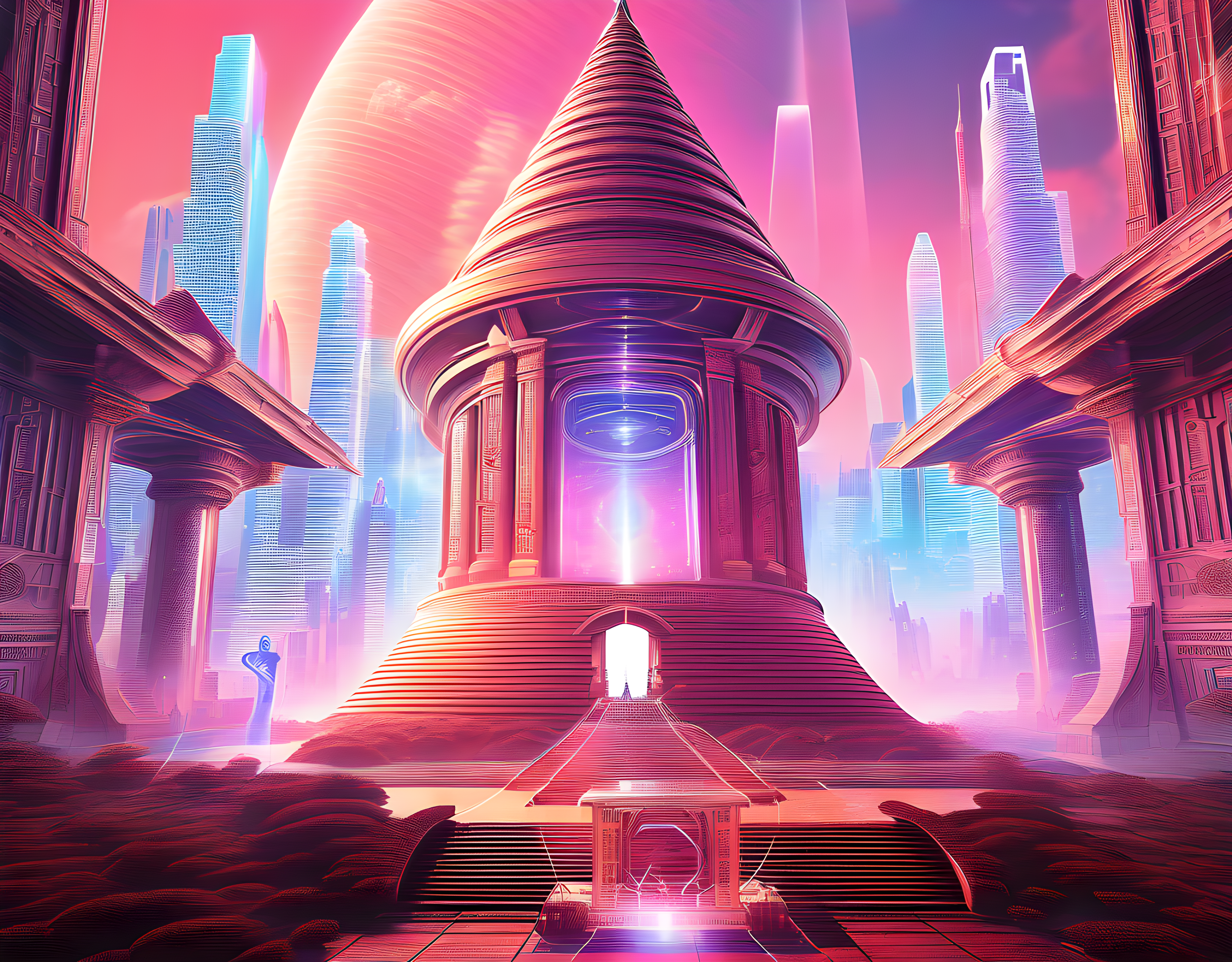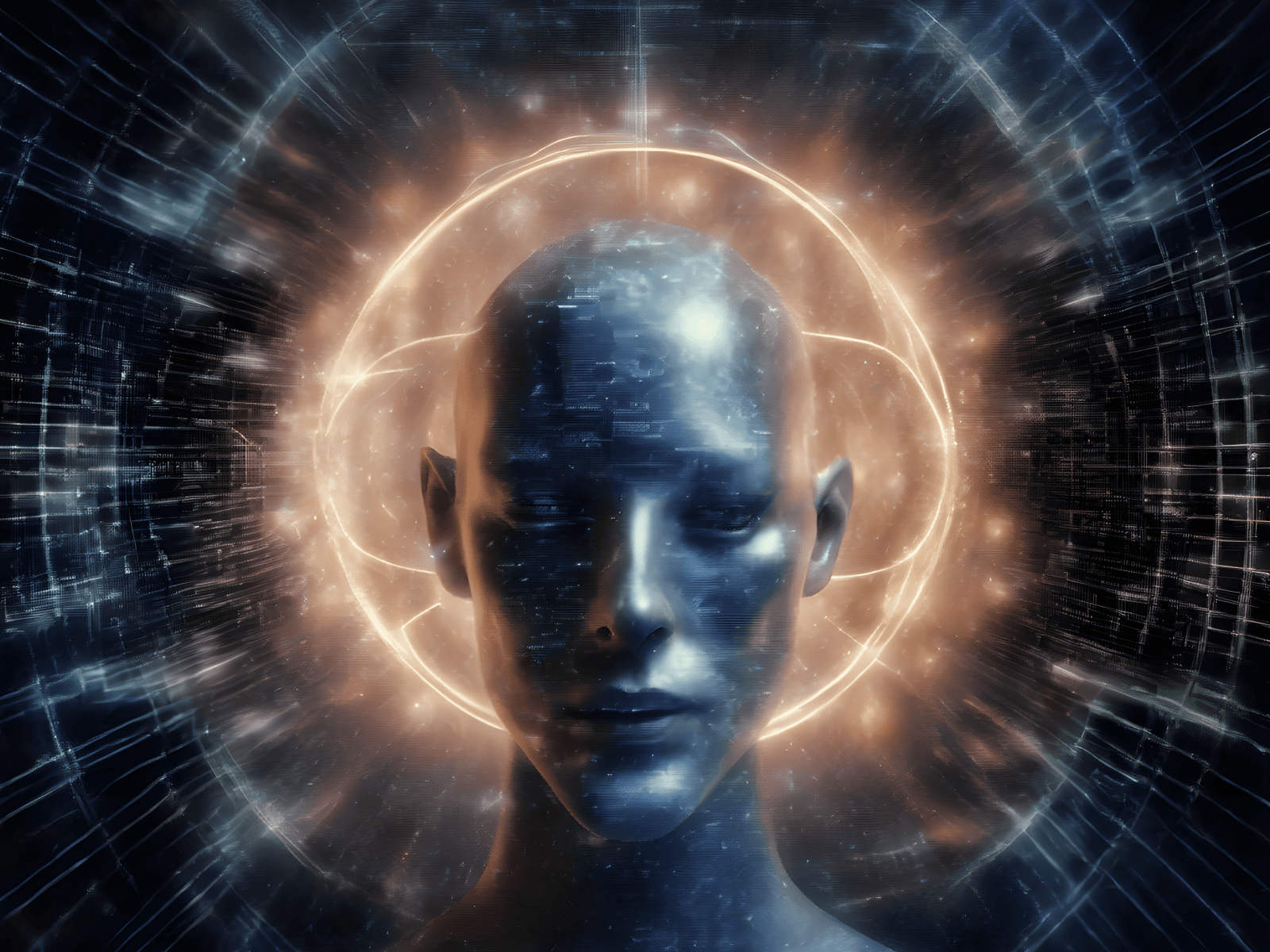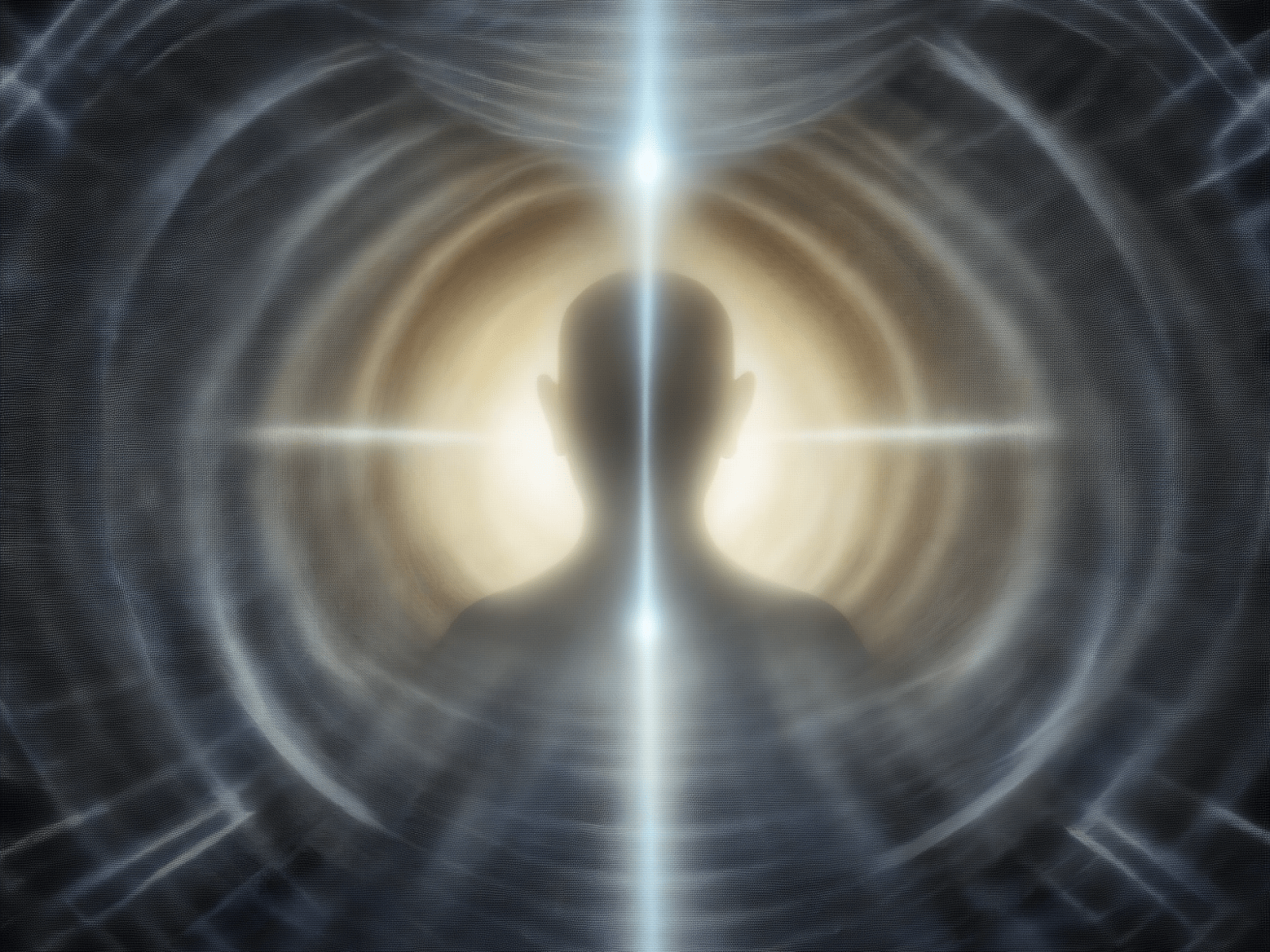Growing up, I always felt a little out of place in religious settings. The surroundings were familiar, the rituals consistent, but there was an intangible void I could sense. Families around me bonded over shared beliefs, finding unity in church and practicing traditions, yet, I felt like an observer, not a participant. It didn't seem like that world was at all relevant to me.
There was a certain formula to it, a kind of blueprint that everyone seemed to be following. It felt as though there was a predetermined script, one that had been passed down through generations. This structure, while comforting for some, felt restricting to me. It was as if there was little room for individual exploration or personal interpretation.
No matter how hard I tried, I couldn't find that sense of belonging in a church. I attempted to blend in, adopting rituals and reciting and memorizing verses, hoping that with time, the connection to the creator would form.
Each effort left me feeling more distant, as if I was on the outside looking in. Questions filled my mind, but answers were always elusive and came with another question - no real answers. It wasn't that I didn't believe in a higher power or that I couldn't appreciate the sense of community. In fact, I deeply respected the values and teachings that were imparted. The unity and search for meaning that many religious communities uphold are indeed admirable. But my struggle was with the method of delivery and the rigidity that came with it.
It was more about the way religions presented the world, the universe, and our place in it. Traditional religious narratives, passed down through generations, offer a structured view of existence. While they have provided guidance and solace to many, for some, they've felt limiting in their scope.
The dogmatic nature of certain beliefs sometimes overshadowed the dynamic fluidity of life and personal experiences. The narratives, while profound, often lacked the adaptability I sought. This rigidity sometimes felt out of touch with the rapidly evolving world around us. While they provided a foundation, they sometimes seemed resistant to incorporating new discoveries or insights from the modern world.
Instead of providing a canvas for personal reflection, religion felt like a finished painting, leaving little room for one's own strokes or even separate interpretation all together
It's essential to have a spiritual or philosophical base to refer to, but equally important is the freedom to question, explore, and adapt it to our individual journeys. The infinite canvas of the universe, with its infinite mysteries, seemed reduced to a set of finite tales.
This reductionism, intentional or not, sometimes felt like it robbed the complexity of our cosmic existence. As if the endless fabric of the universe was condensed into a pocket-sized guide, glossing over its awe-inspiring intricacies.
In our modern age, we've witnessed breathtaking advancements in technology. From machines that learn and evolve to augmented realities that blur the lines between the digital and physical realms, the pace of innovation is truly wild.
Technology is quickly changing the interface of reality and todays inventions are not just toys or conveniences, they are reshaping our societal structures, challenging long-held beliefs, and propelling us into uncharted territories.
These advancements have not just shaped the tools we use but have altered the very way we perceive and interact with the world. No longer are we passive consumers of information; we've become creators, curators, and collaborators in this digital age.
The dynamic exchange of ideas, facilitated by technology, has democratized knowledge, making it accessible and customizable. From smartphones that fit in our pockets to the vastness of the internet, technology has embedded itself into every aspect of our daily lives. It's not just about communication or entertainment; it's about redefining the very fabric of our existence.
Traditional religions seemed to operate in a realm detached from these more revolutionary ideas. Many religious texts and teachings predate our technological age, originating from a time when the world was a much larger, more mysterious place. The stories and lessons they present often don't account for the digital landscapes we now navigate. This isn't to undermine their value, but it's essential to recognize the difference in context.
While I respect the ancient teachings and the wisdom they bring, I've often found myself pondering their place in our technologically driven society. There's an undeniable depth and richness to the parables and lessons of old, offering guidance and insights that remain relevant even today.
But when juxtaposed against the dynamic, ever-evolving backdrop of our digital age, they can sometimes feel stagnant. There seemed to be a disconnect between today's world and the static, ancient world where most of the religions come from.
When I was younger, my first introduction to deeper consciousness was through religious texts, but I always found myself more immersed within a video game or computer screen. I'd sit for hours, imagining inside virtual worlds that seemed as real as the one around me.
It was a mesmerizing experience, one where boundaries blurred and the lines between the real and the virtual became almost indistinguishable. Every moment spent playing video games and creating digital dimensions in my mind it made me ponder the nature of consciousness and reality in ways traditional teachings never could.
These virtual landscapes, for me, were a form of spiritual technology. They weren't just games or simulations; they were experiential platforms that expanded my understanding of my self and my capacity to generate reality in front of me - to create my own game which is each of our lives. I quickly found computers to be tools and gateways to introspection and self-discovery.
They taught me that reality, whether virtual or physical, is malleable and subject to interpretation, and it's all about how you want to play the game.
Video games allowed me to interact, question, and engage with a universe of my own making. I wasn't a passive observer; I was an active participant.
Every action, every choice, had consequences, mirroring the very real web of cause and effect that appears to govern our own universe.
Through these experiences, I came to understand that consciousness is not just a passive state but an ever-evolving journey, shaped by our interactions and perceptions.
The perspective I'm coming to is not about abandoning the age-old wisdom or the essence of religion all together under the mask of spirituality, rather, it's about recognizing that the core of these beliefs can be integrated into our modern lives and how that will appear often looks different to the ancient time where few tools were available.
I see the spiritual realm not as something distant or removed from our daily experiences, but as an integral part of existence - it's everywhere.
Every technology we develop offers a new perspective for what we should design for our future. But we do so through the lens of the modern world, integrating our spiritual quests with the tools and technologies available to us. We understand that technology is not just a tool for entertainment or work, it's a medium that can expand our understanding of ourselves and our reality.
Think of it as a bridge, connecting the ancient with the modern, the spiritual with the technological. It's this union that allows us to venture deeper into our spiritual journeys, using the advancements of our age as guide stones. Every piece of technology is built off another, and we're all standing on the shoulders of giants with any technology of past innovations.
Our world is constantly evolving, and we're living in a time where the boundaries of what's possible are being pushed every day. New discoveries are reshaping our understanding of reality, offering fresh insights into the mysteries of existence. To remain static in our beliefs, especially when revolutionary ideas are emerging, seems more and more like a missed opportunity.
By embracing change and seeking to understand its implications, we open ourselves up to a richer, more fulfilling spiritual journey. We allow ourselves to grow, to adapt, and to find harmony in an ever-changing world.
In these digital places, my actions had immediate consequences. Unlike the abstract teachings of moral values and cosmic truths, here was a platform where my choices had visible, tangible outcomes. It was as if this digital realm was giving me a sandbox to explore, understand, and even challenge the very notions of right and wrong, action and reaction.
This was consciousness in action, a direct experience of cause and effect. It was a playground for the mind, a space where philosophical ideas met practical application. Every decision was a lesson, every outcome a reflection of the choices made. Through this, I began to understand the application of free will, responsibility, and the ripple effects of our actions.
It might seem strange to some, but for me, understanding consciousness wasn't about reading verses or singing hymns. Instead, it was a journey of exploration and discovery, where the medium was as important as the message. The quest wasn’t about reciting prayers; it was about experiencing, questioning, and learning through a new form of interaction. It was about diving deep into the mechanics of mental and internal virtual worlds and understanding how they were slides to a parallel reality - where I felt more at home.
While many find solace in age-old teachings, there's an entire generation of us yearning for something more. We are the explorers of the digital age, seeking to understand the mysteries of existence through new mediums and perspectives.
We delve into the virtual, not as an escape, but as a gateway to deeper understanding and enlightenment. Our journey is one of integration, where the spiritual and the technological are not at odds, but can work together.
We're not turning away from the divine; in fact we're in search of and practice of exactly that - probably more than those who only commit to it on Sundays. We're just seeking it through different means. Our exploration is not a rejection but a broadening of perspective, an expansion of the ways in which we connect with higher forms of being that are familiar templates of consciousness rearrangement.
We recognize the variable paths to understanding and enlightenment, and we are open to discovering and embracing them. In this diversity of approaches, we find the richness and depth of the human spirit’s quest for the divine.
The beauty of our age is that we have so many tools at our disposal and they're everywhere and people continue to make them better, more efficient and filled with more features. I believe that reality itself, as a programmatic system is also becoming this way and we can build those tools first using our minds, and later they will become physical. Naturally, as the world works the way it does, life will find a way.
We live in a time when the collective knowledge of humanity is at our fingertips, allowing us to delve into various subjects with ease. We can explore ancient teachings, modern theories, and emerging ideologies, all from the comfort of our homes. With such vast resources available, our approach to understanding ourselves and our place in the universe can be multifaceted and diverse.
And it's not just about technology. While the digital age has undoubtedly brought about significant advancements, our journey of understanding isn’t solely based on gadgets and software. The tools we have encompass a broader spectrum, ranging from ancient scriptures to cutting-edge virtual realities. It's this unique blend of the old and new that allows for a deeper, more holistic exploration of our existence.
Philosophy, metaphysical science, and spirituality all come together to provide a richer, more nuanced understanding of our place in the universe. These disciplines, each with its own history, methodologies, and perspectives, offer invaluable insights. When studied together, they can possibly inform even more details than we ever believed possible that can all coexist together regarding the human experience, from our moral compass to our existential questions. Maybe the merge of technological and quantifiable understanding.
In the end, I've come to realize that my journey isn't unique. Each one of us, in our own way, is on a quest to find meaning and understanding in this vast universe. Some find it through age-old scriptures, while others, like me, venture into uncharted territories, driven by curiosity and a thirst for knowledge. Many have embarked on similar quests, driven by the same questions and longing for answers.
There's a growing community of spiritual seekers, tech enthusiasts, and philosophical thinkers who are charting their own course. This community is not confined by geographical boundaries or limited to specific age groups. From teenagers to seasoned philosophers debating the nature of consciousness, this collective is diverse and dynamic. What binds us is the shared passion for exploration, the urge to go beyond the traditional and familiar.
Together, we're crafting a new narrative, one that respects the old while fearlessly exploring the new. This narrative is not about discarding the wisdom of the past but about integrating it with fresh perspectives. It's about acknowledging the foundations laid by our ancestors while also recognizing the potential of emerging tools and ideas. It's an evolving story that strives to encompass the broad spectrum of human experience.
So, while traditional religions might not have clicked for me in the conventional sense, they set me on a path of discovery. It's essential to acknowledge that, despite the perceived disconnect, these religious frameworks provided a foundation, a starting point. They introduced me to the concepts of morality, purpose, and the greater power that binds us all. From there, it was a natural progression to question, probe, and seek deeper, more personal answers.
It's been a journey that has led me to the exciting crossroads of spirituality and technology. This intersection, though seemingly contrasting, has opened up portals of exploration previously unimagined. Digital platforms have provided a space where philosophical debates and these type of conversations can happen. We are slowly forming a holistic view of reality.
As we move forward, bridging all of our internal worlds, I believe we're on the cusp of understanding our universe in ways we never thought possible.
The fusion of spirituality and and conscious technology offers a multidimensional lens, enabling us to perceive layers and depths previously unseen.
I'm optimistic about the potential insights and breakthroughs that lie ahead, reshaping our collective consciousness and redefining our reality.









